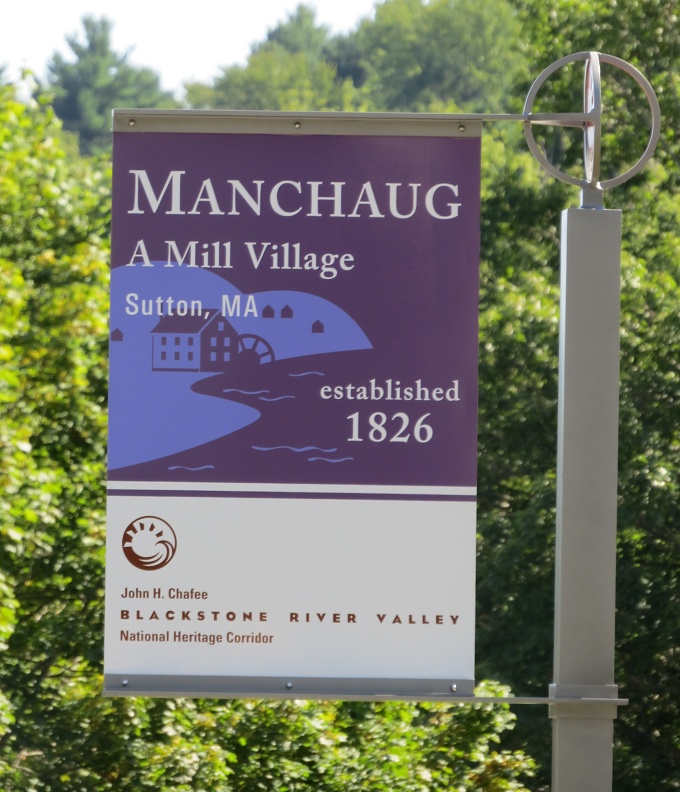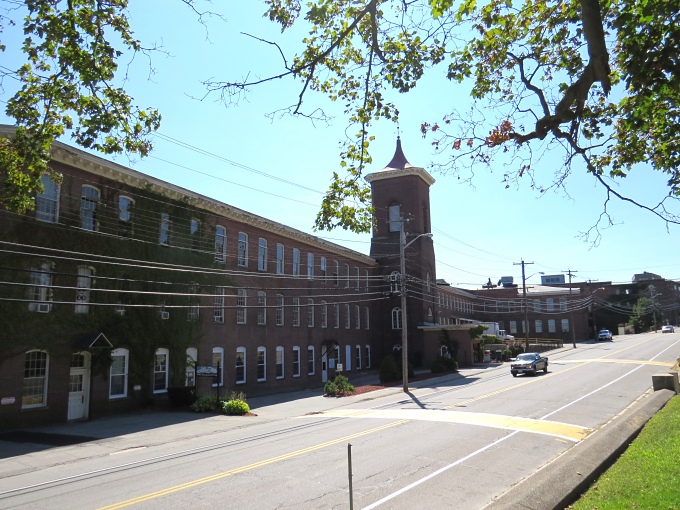From a Family of Mill Workers
/Did you ever have one of those epiphanies when you finally comprehend something that you've seen, read and heard about for years, but its significance had never really hit you? I had such an experience the other day as we drove through the Blackstone National Heritage Corridor through mill town after mill town. The life of the mill worker is my own heritage. I was bred from this stock of hard-working laborers that spent their lives in mills, working long days in miserable conditions.
My grandfather was born in Manchaug, a mill town in south central Massachusetts and worked at the Manchaug Mills as a young man. Most young men in Manchaug did the same. It's what you did. It's the work that was available then. People died of brown lung (inhalation of textile fibers) and machinery accidents. Towns smelled of mill fumes. Rivers changed color depending upon the chemicals that were dumped into them that day.
After being discharged from the Army after WWII, my dad worked at Whitin Machine Works in Whitinsville. This company had been making machines for the textile industry since 1831 and during the post-war years employed thousands. In his later years, he worked in a steel mill in Worcester.
My Mom always worked. First at a knitting mill, MKM, as a piece rate worker assembling sweaters, and later at Carlton Woolen Mills as a weaver. Both mills were located in Rochdale, MA, the village in which she was born. My parents always referred to their workplaces as “the Shop”.
My grandmother worked at the Worcester Knitting Company for over 40 years. The year I turned 16, she got me a job and I worked there summers and every vacation for the next three years for minimum wage. Did you ever see the opening scene of “Joe vs. the Volcano”? It's a depressing look at factory life. Gray-brown, dull, boring, poor lighting and unhealthy. It was an awful job. From my table, I looked out windows caked thick with dust and grime and could never tell what color the sky was. It was hot, filthy and joyless. I dreaded entering the building every morning at 06:50.
I was a piece-rate worker and my job was to inspect and properly fold polo shirts … a fancy name for t-shirts. I stood beside a thigh-high table for eight hours a day. Beside me was a huge bin which Millie, the floor lady, aka the boss, would fill throughout the day with searing hot, freshly steam pressed shirts in four dozen bundles. I would inspect the shirts for quality then cut off loose threads, apply labels, insert tissue and fold. There were small, pliable aluminum fasteners that squeezed shut or sometimes common pins were used to keep the shirts properly folded. The fasteners cut my fingertips and I was reprimanded once when I got blood on a finished shirt.
I worked with 4-5 little Italian ladies who had cumulatively worked at the mill, doing the exact same job, for nearly 150 years. They rarely spoke to me; talking was discouraged. After all, we were there to work, not chat. I folded those shirts into neat one-dozen piles and stacked them in front of me. Millie would swoop over and remove the finished product every once in awhile and refill my bin with more shirts to be folded. The company sold product to J C Penney and Sears and every time I looked at their catalogs and saw those shirts for sale, I felt a wave of nausea.
It was working at that factory that convinced me that I needed to go to college and get an education. The thought of working in this mill and becoming like the shriveled little Italian ladies was so abhorrent to me, that no amount of stress, grief or aggravation through my college years was equal to my fear of working at the Worcester Knitting Company for the rest of my life. My generation was the first in our family to complete high school, never mind go on to college.
The mills have gone by the way now … renovated and refurbed for other uses. Driving through this “heritage corridor” of mill towns however, will stay with me forever now. It's always been a part of me; I just never realized how much.






